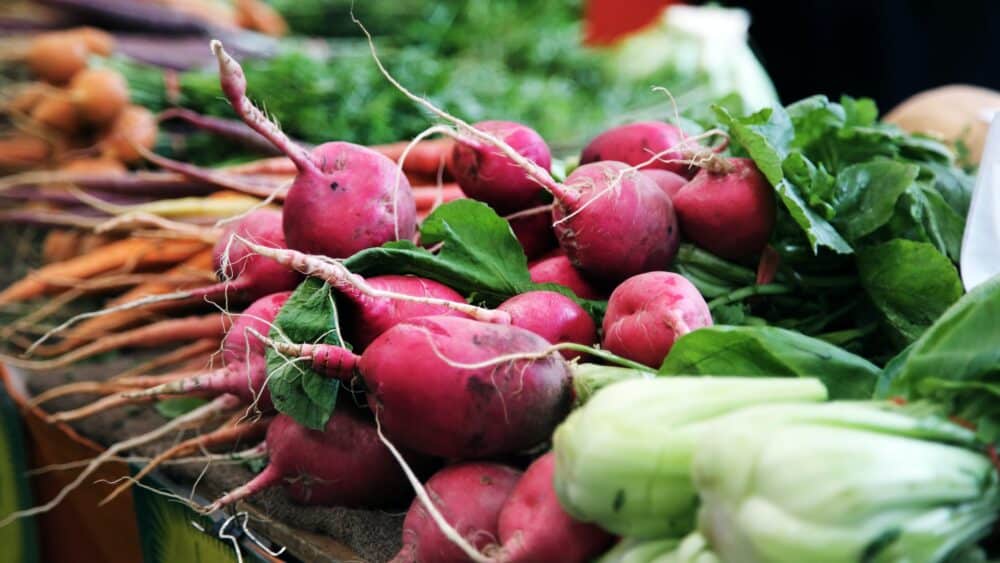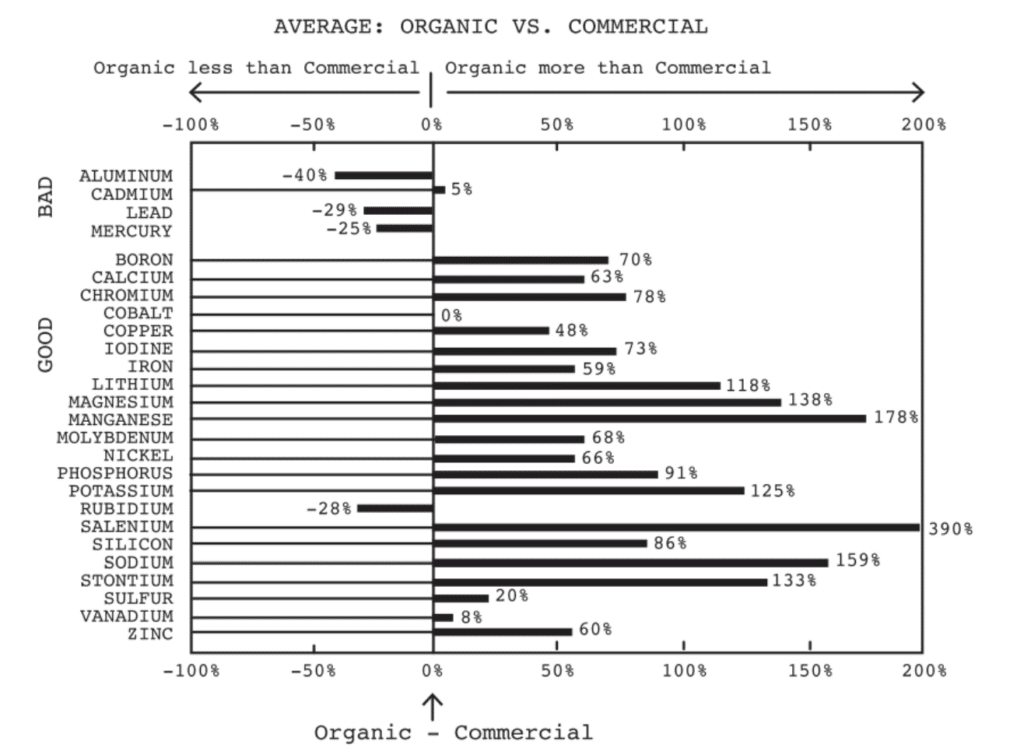
10 Aug Eating Organic – Does it really matter?
In recent years, the debate over whether eating organic food truly matters has gained significant attention. One study done in the 1940s in the United States analysed the nutritional value of different fruits and vegetables’ average sizes. At the time, all the foods were organic by default – a reality that has drastically changed over the decades since with the advent of systematic use of pesticides and/or preservatives. The study revealed that the average serving of spinach (approximately 100g) had 158milligrams of iron. Contrastingly, the commercially grown spinach we find in the supermarkets today may look picture-perfect, but it only contains 2.2 milligrams of iron in it. Over the last 8 decades of agricultural and farming advancements, the iron content has plummeted from 158 milligrams to just 2.2 milligrams.

The Impact of Pesticides:
Glysophate, a key component in the widely used herbicide Roundup, has been linked to various health issues, including non-Hodgkin lymphoma. With 95% of our corn and a considerable portion of our wheat being sprayed with Roundup, it is something that every Australian should be concerned about.
For a more comprehensive discussion, check out this podcast excerpt featuring environmental lawyer and current presidential candidate, Robert F. Kennedy in conversation with Joe Rogan.
Organic vs. Non-Organic: A Comparative Study:
Doctor’s Data, a reputable clinical laboratory with over 30 years of experience, conducted a study comparing organic and non-organic fruits and vegetables. The results demonstrated that organic produce contained five to ten times more beneficial vitamins and minerals while harmful minerals, like lead, mercury, and cadmium, were significantly higher in non-organic food.
The True Cost of Organic Food:
Many individuals shy away from purchasing organic food due to perceived higher costs. However, when considering the substantially higher nutritional value of organic produce, the expense becomes justified. Investing in organic food means reaping five to ten times more nutritional benefits, making it a smart choice for overall wellbeing. If you have a chronic disease or are suffering from a form of physical ailment, the most basic and fundamental change you can make to improve your health is to consume organic produce.
Where to Find Organic Food?
-
Visit local famers’ markets like South Freo Farmer’s Market, where direct-from-farm produce (for example a local farm in Byford) is available.
-
Explore local farms or collaborate with others to form a co-op and purchase organic produce from wholesalers in Canningvale
-
Visit the NatMed Where to Shop Guide – HERE
Eating Out:
While eating out can be enjoyable, it may pose challenges in finding organic options. To maintain a healthier lifestyle, consider cooking majority of meals at home, where you have better control over the ingredients.
The Cost of Good Health:
Choosing to eat organic is not just a trend but a well-informed decision for better health. The decline in nutritional value in conventional produce, coupled with pesticide-related concerns, emphasises the importance of prioritising organic foods. Though it may seem costly, the abundant nutritional benefits make organic food a worthwhile investment in your well-being. With the right resources and dedication to seek organic options, you can make informed choices that create a positive change in your health.
